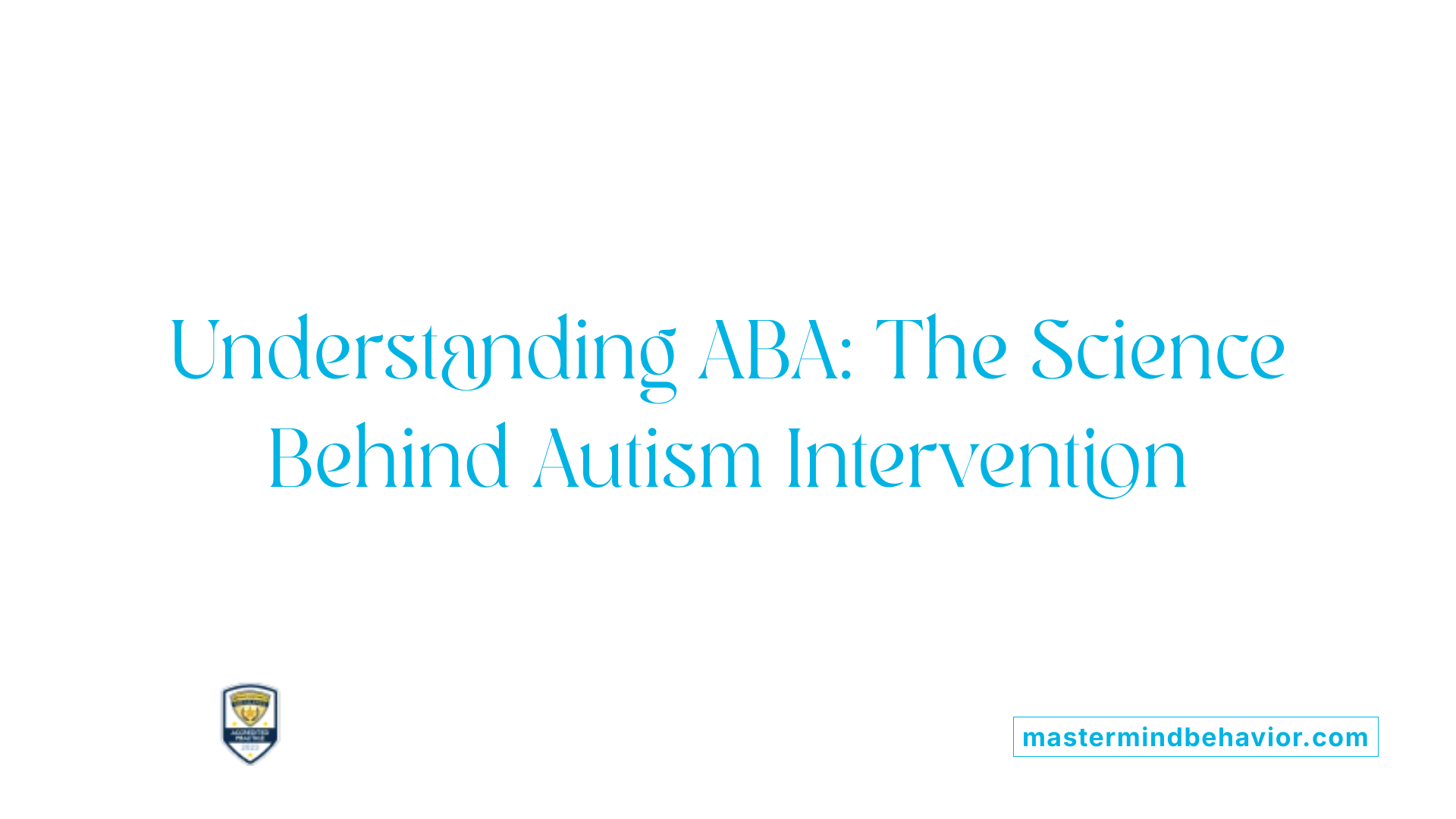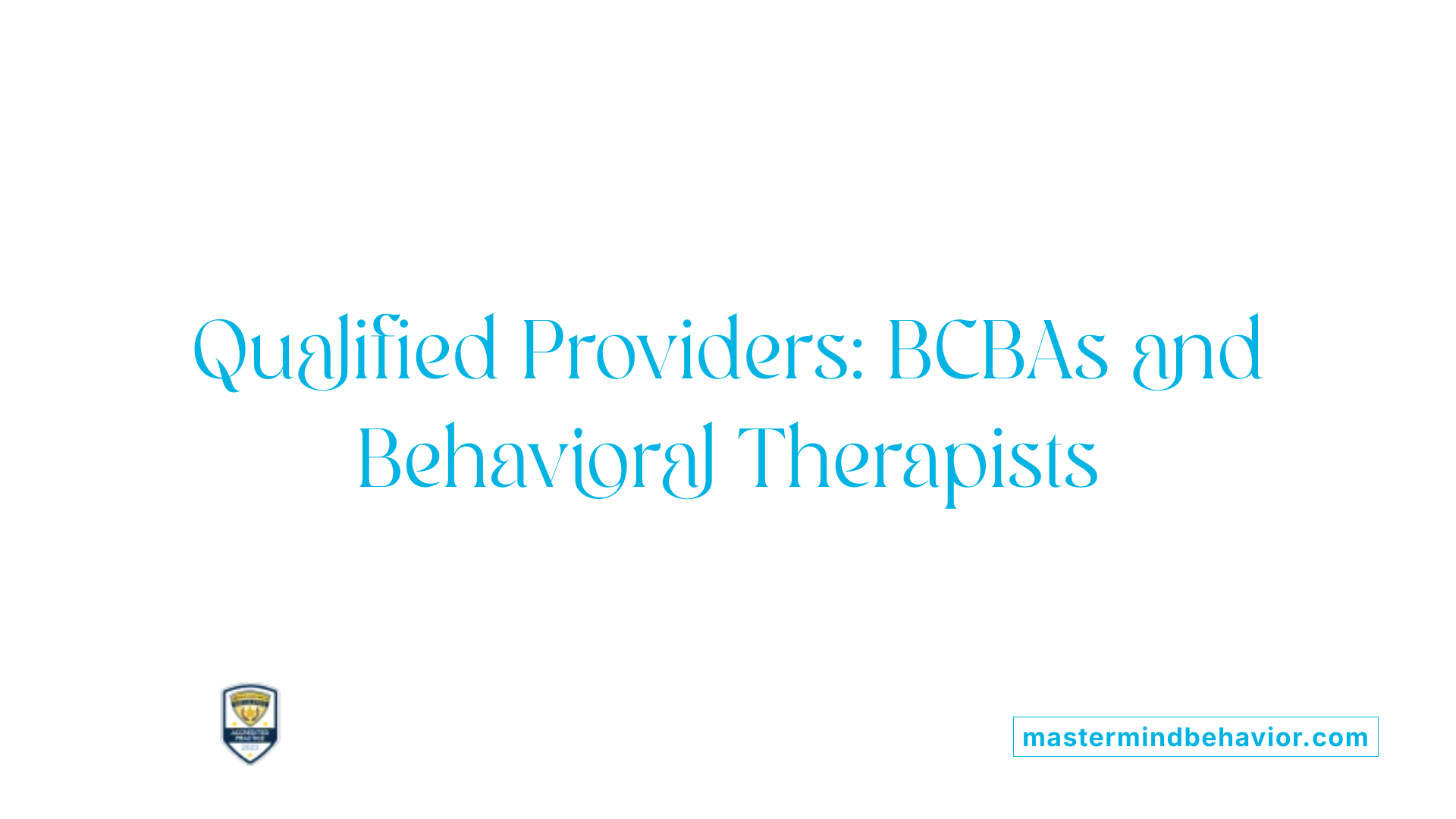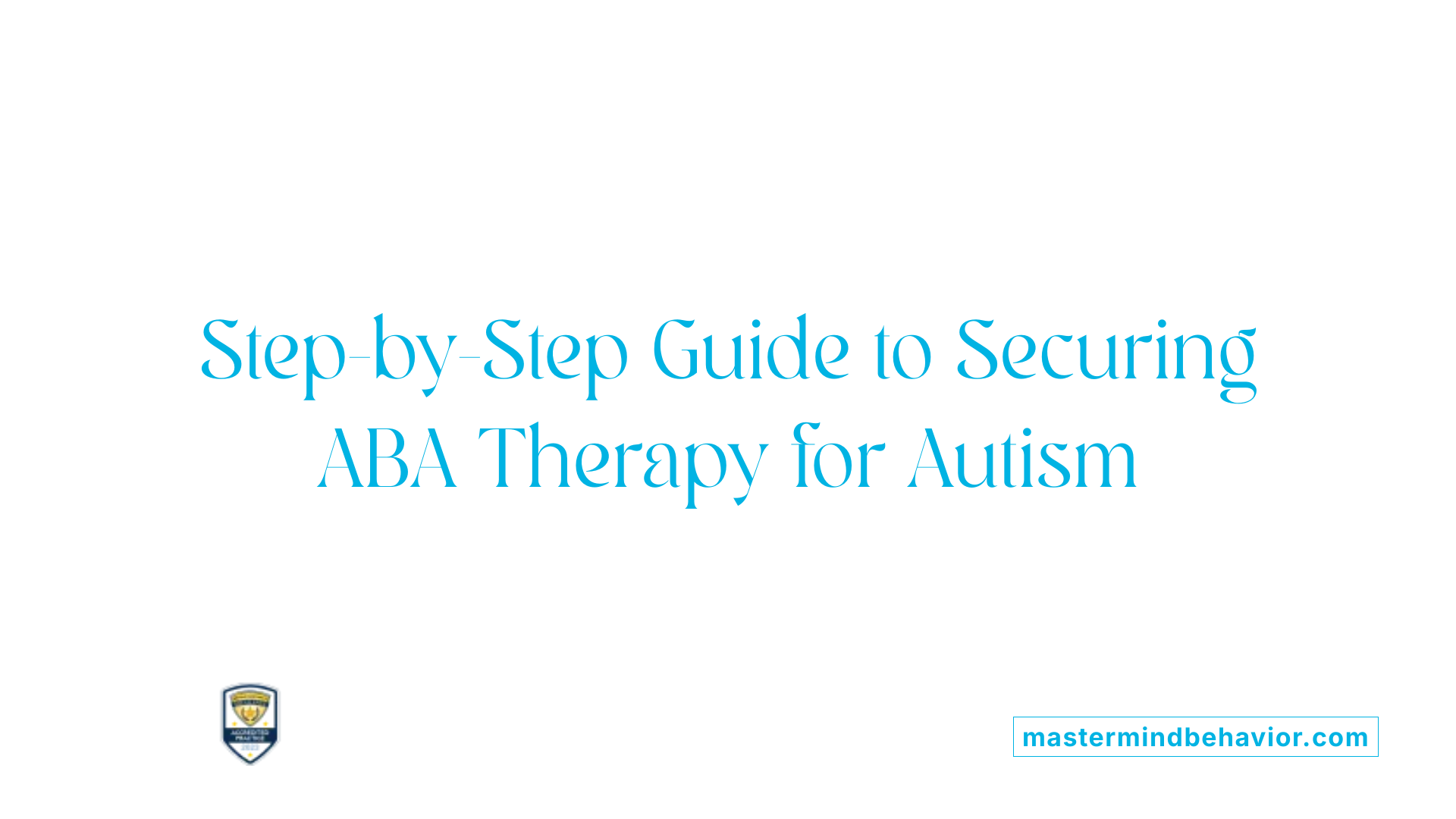Understanding Autism Support Through State Laws and Services
Navigating the intricate landscape of autism laws and legal support services can be challenging for families seeking the best care for their loved ones. New Jersey and Georgia have enacted robust legislation and developed detailed support systems to ensure access to necessary autism therapies such as Applied Behavior Analysis (ABA), speech, occupational, and physical therapies. This article unfolds the specifics of these laws, highlights state-coordinated services, and provides clear guidance on how families can leverage these legal protections effectively.
Key Facts on Autism Insurance and ABA Treatment in NJ and Georgia
- New Jersey's Autism Insurance Mandate (2009) requires coverage for therapies including ABA for individuals under 21.
- New Jersey prohibits therapy visit limits under federal health parity laws, ensuring equitable access to autism treatments.
- The Office on Autism in New Jersey coordinates early intervention, school support, and adult services across multiple agencies.
- Georgia mandates insurance coverage for children under 20 with autism, with an annual cap of $35,000 on ABA therapy.
- Compared to New Jersey, Georgia's law limits coverage through annual caps and age restrictions, potentially impacting access.
- Georgia’s insurance laws interact with federal regulations like the ACA and Mental Health Parity Act, which aim to prevent discriminatory limits.
- ABA therapy trained providers include Board Certified Behavior Analysts (BCBAs) and behavioral therapists delivering services across various environments.
- Benefits of ABA include improved communication, social skills, and independence, especially when started early with personalized monitoring.
- Families can access ABA through medical provider referrals, public special education programs, and state support services in both states.
- Proper documentation, claims, and appeals are essential for securing insurance coverage for ABA therapies in NJ and GA.
1. New Jersey's Autism Insurance Mandate and Coordinated State Support
Overview of New Jersey Autism Insurance Mandate
Since its enactment in the summer of 2009, New Jersey's Autism Insurance Mandate requires state-regulated insurance plans to cover services essential for children diagnosed with Autism Spectrum Disorder (ASD). This legislation ensures that autism-related therapies, including Applied Behavior Analysis (ABA), occupational, physical, and speech therapies, are covered when medically necessary and prescribed by a physician.
The mandate applies to individuals under 21 years of age, with autism as the primary diagnosis. Importantly, it prohibits insurers from denying coverage on the grounds that the therapy is not restorative, recognizing the unique nature of autism treatments.
Coverage requirements for ABA and other autism therapies
New Jersey law specifies that insurers must cover expenses related to screening, diagnosing, and medically necessary behavioral interventions such as ABA and related structured behavioral programs. Coverage is comprehensive and includes occupational, physical, and speech therapy essential to autism treatment.
Behavioral interventions follow a treatment plan approved by a healthcare professional. This plan must detail the diagnosis, treatment specifics, goals, progress updates, and be signed by the treating physician. Reviews of the plan can occur every six months or more frequently if needed.
State regulations ensure that benefits for behavioral interventions are provided to the same extent as other medical conditions, forbidding denials based solely on the treatment type.
Legal provisions prohibiting therapy visit limits and coverage denial
Following the federal Mental Health Parity Act, New Jersey insurers no longer impose visit limits on speech, occupational, and physical therapies for ASD. This aligns coverage for biologically based mental illnesses, including autism, with other health conditions, promoting equitable access to necessary treatments.
Case law further supports this mandate by preventing exclusions that categorize autism as a developmental disability outside coverage criteria. Additionally, health service corporations cannot exclude autism screening or behavioral interventions from coverage, particularly when the insurer has reserved the right to adjust premiums.
Role of New Jersey's Office on Autism and related state agencies
To enhance service coordination across life stages, New Jersey established the Office on Autism within the Division of Developmental Disabilities. This office works alongside the Department of Human Services, Department of Education, Department of Children and Families, and Department of Health to ensure an integrated approach to autism support.
Together, these agencies oversee an array of programs, including early intervention (birth to age 3), school-aged educational support (ages 3 through 21), transition planning, adult services, and housing assistance. Specialized offerings include supported employment, day supports, and individual or family support services.
Autism prevalence monitoring and diagnostic service centers
New Jersey actively monitors autism prevalence through the New Jersey Autism Study, which reports a rate of approximately 1 in 34 children—one of the highest documented in the United States. This data informs planning and resource allocation.
The state operates ten Child Evaluation Centers distributed statewide, providing comprehensive diagnostic services. These centers serve as critical access points for families seeking assessments and help facilitate timely intervention and support.
Funding options including Medicaid and support programs
Financial assistance for families comes through multiple Medicaid programs such as the Medicaid Community Care Program and the Medicaid Supports Program. These provide funding for therapies and services tailored to individuals with autism.
Additional funding occurs through state and federal assistance programs encompassing educational, behavioral, and health services. Notably, New Jersey supports autism research and safety programs, including grants awarded under Kevin and Avonte’s Law aimed at preventing wandering-related incidents.
State registry and supported decision-making alternatives
The New Jersey Autism Registry offers a confidential database linking families with services and assisting policymakers in planning effective interventions.
Recognizing the importance of autonomy and protection, the state promotes supported decision-making as an alternative to guardianship. This framework helps individuals with autism make informed decisions about their care and personal lives with appropriate support.
Enforcement of insurance coverage mandates and physician-prescribed treatment plans
Insurance plans in New Jersey must honor the Autism Insurance Mandate with coverage that reflects medical necessity as determined by licensed health professionals. Treatment plans devised and signed by physicians—and in some cases developed by Board Certified Behavior Analysts (BCBAs) when insurer policies permit—define the scope of services covered.
Claims and appeals processes emphasize thorough documentation to secure and maintain coverage. Families are encouraged to leverage both state and federal laws, including the Affordable Care Act (ACA) and the Federal Parity Act, to ensure continuous access to essential autism therapies.
| Aspect | Details | Notes |
|---|---|---|
| Autism Mandate Enactment | Summer 2009 | Applies to private insurance regulated by the state |
| Covered Therapies | ABA, occupational, physical, speech therapies | Must be physician-prescribed with documented treatment plans |
| Patient Age Limit | Under 21 years | Legal protections focus on this age group |
| Therapy Visit Limits | Prohibited for speech, occupational, and physical therapy under federal parity law | Ensures parity with physical health conditions |
| State Agency Coordination | Office on Autism, Departments of Human Services, Education, Children and Families, Health | Provides comprehensive support functions |
| Diagnostic Services | 10 Child Evaluation Centers | Accessible statewide |
| Autism Prevalence | 1 in 34 children | Among the highest in US states |
| Medicaid Programs | Community Care Program, Supports Program | Primary funding sources for services |
| Legal Protections and Advocacy | Supported decision-making alternatives, robust appeals | Families supported to secure coverage and autonomy |
| Documentation | Treatment plans requiring diagnosis, goals, updates, and physician signature | Essential for claim approval and regulatory compliance |
2. Georgia's Insurance Mandates for Autism Treatment and Access Limitations
What are the details of Georgia's autism insurance coverage laws?
Georgia has enacted state laws requiring insurance coverage specifically for children with autism under the age of 20. These laws mandate that insurance policies include treatment provisions focused on behavioral health interventions tailored to autism spectrum disorders (ASD). The landmark aspect of Georgia's mandate is its explicit inclusion of applied behavior analysis (ABA) therapy, an evidence-based intervention widely utilized to support children with autism.
What are the age limitations and annual caps for ABA therapy coverage in Georgia?
While Georgia ensures coverage for ABA therapy, there is a clear cap on the maximum annual benefit amount. Insurance coverage for ABA therapy is limited to $35,000 per year. Additionally, the mandate applies only to children under 20 years of age. This creates a structured but somewhat restrictive framework, where families must maximize therapy within the age and spending boundaries set by the state.
How does Georgia's mandate compare to New Jersey's autism insurance laws?
New Jersey’s autism insurance mandate, enacted in 2009, has a broader scope concerning age and types of therapy covered. It requires coverage for children under 21 years for a wide range of therapies including occupational, physical, speech, and ABA therapy without annual dollar limits or visit restrictions.
New Jersey’s law is notably comprehensive: it prohibits insurers from denying coverage simply because a therapy is not restorative, enforces a treatment plan signed by a healthcare provider, and extends protections by virtue of the New Jersey Mental Health Parity Act. The law ensures coverage to the same extent as other medical conditions, and federal parity laws prevent restrictive annual and lifetime limits on therapies.
In contrast, Georgia’s laws include annual expenditure caps and a lower age limit, which can pose barriers to sustained and broad access to services. Both states exemplify a legislative focus on improving access to autism therapies, but New Jersey’s mandate offers fewer restrictions and enhanced parity protections.
What are the insurance requirements under Georgia state law, and how do these interact with federal regulations?
Georgia’s state law mandates are tied to private insurance plans and typically apply to state-regulated plans covering autism therapies. However, like in New Jersey, federally regulated plans, such as those governed by the Employee Retirement Income Security Act (ERISA), might not be subject to the same strict state mandates. These federal plans must still comply with the Affordable Care Act (ACA) and federal Mental Health Parity and Addiction Equity Act, which prohibit discriminatory limitations on mental health and behavioral health treatment coverage.
This interaction means families with employer-funded plans could face inconsistencies in coverage but have federal laws supporting access and protections against arbitrary exclusions. Navigating these overlapping jurisdictional protections can be complex and often necessitates knowledgeable claims management.
How accessible are behavioral health treatments for children with autism in Georgia?
Behavioral health treatments like ABA are available under the mandate but within the constraints of age and financial limits. The annual cap of $35,000 on ABA therapy coverage may restrict the intensity and duration of therapy children can receive, especially for those requiring extensive intervention. Despite these restrictions, the laws have improved access significantly from previous standards when coverage for autism therapies was more limited or nonexistent.
Additionally, Georgia families often depend on supplemental programs or Medicaid-funded supports to fill gaps left by insurance restrictions. Community resources and advocacy groups also play critical roles in supporting service coordination and access.
What challenges do families in Georgia face due to coverage limits for autism therapies?
The primary challenges relate directly to the imposed age and annual spending caps. Since autism therapies often require sustained, consistent intervention beyond the age of 20, the age limit means some children must abruptly transition out of insured ABA coverage before full therapeutic goals are reached.
Similarly, the $35,000 per year cap on ABA therapy can be insufficient in high-need cases, limiting the frequency or comprehensiveness of treatment. Families often encounter difficulties when attempting to secure coverage extensions or additional funding. These limitations require families to pursue alternative funding methods or rely heavily on state support programs.
There also can be barriers related to administrative procedures, such as obtaining prior authorization, producing appropriate diagnostic documentation, and appealing denials, which require significant time and expertise.
What legal protections and avenues exist for appealing insurance denials in Georgia?
Georgia families can leverage state autism insurance mandates and federal laws for appeals when coverage is denied. Insurance companies must follow prescribed treatment plan requirements established by healthcare providers to justify therapy necessity.
If denials occur, families are entitled to appeals processes defined under state regulations and federal statutes like the ACA and Mental Health Parity Act. These laws prohibit discriminatory restrictions on behavioral health treatments, reinforcing the argument for coverage of medically necessary autism therapies.
Advocacy organizations and legal assistance programs provide vital support for families navigating claims and appeals. They help ensure documentation complies with insurer requirements and assist in challenging benefit denials effectively.
Overall, while Georgia's laws have improved insurance access for autism therapies, significant challenges remain due to statutory limits. Understanding these laws, knowing rights under both state and federal frameworks, and accessing advocacy resources are critical for families striving to obtain comprehensive care for children with autism in Georgia.
What is Applied Behavior Analysis (ABA) therapy and how is it used in autism treatment?

Definition and principles of ABA therapy
Applied Behavior Analysis (ABA) therapy is a scientifically validated approach that focuses on understanding and improving human behavior. ABA uses learning theory to increase useful behaviors and reduce those that may cause harm or interfere with learning. This method involves analyzing behavior patterns and applying interventions based on reinforcement techniques to shape desirable behavior.
Applications for improving social, communication, and daily living skills
ABA therapy is widely used to assist individuals with Autism Spectrum Disorder (ASD) in developing crucial skills. It aims to enhance social interaction and communication abilities, which are often challenging for those with autism. Additionally, ABA helps improve daily living skills such as hygiene, grooming, and domestic tasks, fostering greater independence.
Use of reinforcement and skill breakdown techniques
Central to ABA is the process of breaking down complex skills into smaller, manageable steps. Each step is taught systematically to enable gradual mastery. Positive reinforcement—rewarding successful behaviors—encourages repeated practice and learning. This approach can effectively teach reading, academics, and adaptive skills like punctuality and job competence.
Role of ABA in managing behaviors and fostering independence
ABA therapy is also instrumental in managing challenging behaviors by identifying their causes and teaching alternative, appropriate responses. Through consistent and structured interventions, individuals with autism can develop self-control and engage more positively with their environment. This support contributes significantly to enhancing overall independence and quality of life.
In New Jersey, ABA therapy is recognized under state mandates requiring insurance coverage for medically necessary behavioral interventions for individuals under 21 years of age diagnosed with autism. Coverage includes therapy delivered through treatment plans prescribed by healthcare professionals, ensuring access to this evidence-based intervention as part of comprehensive autism care.
Who provides ABA therapy services for individuals with autism?

Professionals qualified to deliver ABA therapy
ABA therapy for individuals with autism is typically delivered by professionals who have specialized training in behavioral analysis. The primary providers include Board Certified Behavior Analysts (BCBAs), who design and oversee treatment plans, and behavioral therapists who implement therapy sessions under supervision. Providers are equipped to tailor interventions based on individual behavioral assessments.
Role of Board Certified Behavior Analysts (BCBAs) and behavioral therapists
BCBAs have advanced certification and training allowing them to conduct thorough assessments and develop evidence-based treatment plans. Behavioral therapists, often supervised by BCBAs, provide direct one-on-one therapy focusing on skills such as communication and social interaction. Together, they ensure consistency and efficacy in behavioral interventions.
Service environments including clinics, home, schools, and community
ABA services may be delivered in a variety of settings to best meet the needs of the individual. Clinics provide structured therapy sessions and assessments, while home-based services offer personalized support in the natural environment. Schools incorporate ABA techniques to support learning and socialization, and community-based programs help generalize skills in everyday settings.
Examples of regional providers and service offerings
In the regional context, organizations like the Manhattan Psychology Group serve as examples of providers offering ABA therapy. They deliver comprehensive care including diagnostic assessments, parent and caregiver training, and supervised therapy sessions. Such providers typically cover metropolitan areas including New York City, often extending services into nearby regions including parts of New Jersey and surrounding states.
Importance of individualized and evidence-based treatment plans
Central to effective ABA therapy is the development of individualized treatment plans. These plans, created by BCBAs, are based on ongoing assessments and are tailored to address each person's unique needs and goals. Evidence-based techniques such as positive reinforcement form the foundation of the therapy, helping improve communication, social skills, and daily functioning for individuals with autism. Individualized plans ensure therapy remains responsive and dynamic, adjusting as the person makes progress.
| Aspect | Description | Examples/Details |
|---|---|---|
| Qualified Providers | BCBAs and behavioral therapists with expertise in autism and ABA | BCBAs hold certification; behavioral therapists work under BCBA supervision |
| Treatment Settings | Clinics, homes, schools, community environments | Flexible delivery based on individual needs |
| Regional Providers | Organizations such as Manhattan Psychology Group | Offer assessments, therapy, and parent training in NYC area and nearby states |
| Treatment Approach | Individualized, evidence-based using behavioral principles | Focus on positive reinforcement, skill-building, and adaptive behaviors |
| Treatment Plan Components | Diagnosis, goals, therapy methods, progress updates | Developed and updated by BCBAs with physician involvement if required |
Benefits of ABA therapy for individuals with autism
What are the benefits of ABA therapy for individuals with autism?
Applied Behavior Analysis (ABA) therapy is one of the most effective treatments for individuals with autism, demonstrating considerable benefits across various developmental areas. It focuses on improving communication, social interaction, and daily living skills, which are critical for greater independence.
ABA uses positive reinforcement and structured behavioral programs to teach essential skills like language, peer interaction, and self-advocacy. This evidence-based approach has been recognized by leading health organizations such as the US Surgeon General and the American Psychological Association for its effectiveness.
How does ABA therapy improve communication, social interaction, and independence?
ABA therapy helps reduce challenging behaviors while encouraging positive behaviors by breaking down skills into manageable steps. Individuals can learn to better express themselves, engage more fully with others, and perform everyday tasks independently, such as dressing, eating, and self-care.
What are the benefits of early intervention and individualized progress monitoring?
Starting ABA therapy early, typically before age four, often results in substantial developmental gains. Early, intensive intervention can enable many children to participate more fully in mainstream educational and social settings. Progress is closely monitored using data collection methods, allowing personalized treatment plans to adapt to each individual’s evolving needs.
Why is ABA recognized by health organizations and how does it enhance quality of life?
ABA's recognition by respected health authorities underscores its scientific validation and widespread acceptance. The therapy not only targets skill acquisition but also enhances overall quality of life by reducing problematic behaviors, increasing independence, and improving social integration.
| Benefit Area | Description | Examples of Improvement |
|---|---|---|
| Communication | Enhances ability to understand and use language. | Increased verbal skills and improved nonverbal cues. |
| Social Interaction | Boosts peer engagement and social understanding. | Better eye contact, turn-taking, and sharing. |
| Independence | Encourages performance of daily living tasks without assistance. | Self-care routines like dressing and feeding. |
| Early Intervention Outcomes | Facilitates significant developmental progress when started early. | Greater inclusion in typical classrooms and activities. |
| Individualized Progress Monitoring | Tailored programs based on ongoing data and assessments. | Customized goals and adjustment as needed. |
| Health Organization Recognition | Endorsed by the US Surgeon General and American Psychological Association. | Widely accepted and scientifically supported treatment. |
How can families access ABA therapy services for their loved ones diagnosed with autism?

Steps families can take to access ABA therapy
Families seeking Applied Behavior Analysis (ABA) therapy for a loved one diagnosed with autism can begin by consulting a healthcare professional—such as a pediatrician or developmental specialist—who can diagnose Autism Spectrum Disorder (ASD) and prescribe ABA therapy as medically necessary. This medical diagnosis and treatment plan are vital to meet insurance requirements.
Role of healthcare providers in referrals and prescriptions
Healthcare providers are responsible for creating a comprehensive treatment plan that outlines the diagnosis, proposed ABA therapy details, treatment goals, and regular progress updates. This plan must be signed by the treating physician and reviewed every six months or more often if needed. Board Certified Behavior Analysts (BCBAs) may contribute to the treatment plan if insurers permit.
Insurance coverage and verification processes in NJ and GA
In New Jersey, state laws mandate that private health insurance plans cover ABA therapy and other autism-related services for individuals under 21 years old. Coverage includes occupational, physical, and speech therapies alongside ABA, with no visit limits due to federal mental health parity laws. Benefits cannot be denied simply because the therapy is non-restorative. Families should verify their insurance benefits and work closely with providers to ensure claims and documentation meet policy criteria.
Georgia requires insurance coverage for ABA up to $35,000 annually for children under 20. Although coverage exists, families should confirm plan limitations and coordinate with insurers to maximize coverage.
Special education programs and Individualized Education Plans (IEPs)
In addition to medical insurance, families can seek ABA services through public school special education programs under the Individuals with Disabilities Education Act (IDEA). Parents may request an evaluation and inclusion of ABA therapy within an Individualized Education Program (IEP), which provides tailored educational and therapeutic support for children aged 3 to 21.
Importance of documentation, claims, and appeals in coverage access
Navigating insurance claims can be complex. Proper documentation including diagnosis, treatment plans, and physician orders are essential. Families are encouraged to maintain detailed records and be prepared to appeal denials using state and federal autism insurance mandates and parity laws to support coverage claims.
Coordination with state programs and regional centers
New Jersey offers extensive state-coordinated services through agencies such as the Division of Developmental Disabilities and Child Evaluation Centers. Families can access diagnostic evaluations, service coordination, and various supports that complement ABA therapy. Medicaid programs and autism-specific registries also provide critical connections to funding and resources.
By engaging healthcare providers, confirming insurance coverage, leveraging educational plans, and collaborating with state programs, families can effectively access ABA therapy services to support their loved ones with autism.
Maximizing Access and Advocacy for Autism Therapies in NJ and GA
Navigating autism laws and legal support services in New Jersey and Georgia requires thorough understanding of each state's mandates, available therapies, and insurance coverage limitations. New Jersey’s comprehensive insurance mandate and coordinated state services exemplify a strong commitment to ensuring medically necessary treatments, while Georgia provides essential coverage with notable caps. Families can greatly benefit from knowledge of their rights, proper documentation, and the use of appeals processes to secure ABA and related therapies. By leveraging state laws, federal regulations, and available resources—including specialized providers and advocacy groups such as Autism Speaks—caregivers can better support the development and wellbeing of individuals with autism across their lifespan.
References
- Summary Autism and Insurance Coverage State Laws
- How to Obtain Health Insurance Coverage for Therapies ...
- New Jersey Advocacy
- Autism
- New Jersey Revised Statutes Section 17:48E-35.33 (2024)
- Applied Behavior Analysis (ABA)
- The Top 10 Reasons Children With Autism Deserve ABA
- Applied Behavior Analysis (ABA)










